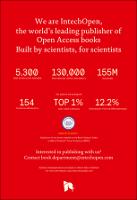Chapter Energy Efficiency for 5G Multi-Tier Cellular Networks
Author(s)
Ho Lee, Moon
Hashem Ali Khan, Md.
Language
EnglishAbstract
This chapter provides an introduction to quantifying the energy consumed by software. It is written for computer scientists, software engineers, embedded system developers and programmers who want to understand how to measure the energy consumed by the code they write in order to optimize for energy efficiency. We start with an overview of the electrical foundations of energy measurement and show how these are applied by reviewing the most commonly found energy sensing techniques. This is followed by a brief discussion of the signal processing required to obtain energy consumption data from sensing. We then present two energy measurement systems that are based on sensing techniques. Both can be used to directly measure the energy consumed by software running on embedded systems without the need to modify the hardware. As an alternative, regression-based techniques can be used to infer energy consumption based on monitoring events during program execution using counters monitors offered by the hardware. We introduce the foundations of regression analysis and illustrate how an energy model for an ARM processor can be built using linear regression. In the conclusion, we offer a wider discussion on what should be considered when selecting an energy measurement technique.
Keywords
energy measurement, power, energy sensing, energy measurement systems, regression analysisDOI
10.5772/66052Publisher
InTechOpenPublisher website
https://www.intechopen.com/Publication date and place
2016Classification
Sustainability


 Download
Download